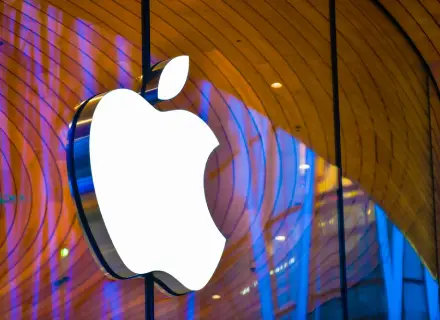Tech giant Apple has attacked its industry peer Meta Platforms, highlighting the fierce competition between the two behemoths, claiming that its repeated requests to access the iPhone manufacturer’s software tools for its devices could affect users’ security and privacy.
Following the historic Digital Markets Act of the European Union, which went into effect in 2023, Apple faces a fine of up to 10% of its yearly global revenue unless it permits competitors and app developers to use its services.
As per a report by Apple, Meta has submitted 15 interoperability requests so far, more than any other company, for potentially extensive access to Apple’s technology stack.
“In many cases, Meta is seeking to alter functionality in a way that raises concerns about the privacy and security of users, and that appears to be completely unrelated to the actual use of Meta external devices, such as Meta smart glasses and Meta Quests,” Apple said, as reported by Zawya.
The company’s goal is to control the computational platform that drives virtual reality (VR) and mixed reality (MR) devices, and Meta Quest is its virtual reality headset.
“If Apple were to have to grant all of these requests, Facebook, Instagram, and WhatsApp could enable Meta to read on a user’s device all of their messages and emails, see every phone call they make or receive, track every app that they use, scan all of their photos, look at their files and calendar events, log all of their passwords, and more,” the iPhone maker noted further, while raising concerns about the privacy fines that Meta has received in Europe in recent years.
“What Apple is actually saying is they don’t believe in interoperability. Every time Apple is called out for its anticompetitive behaviour, they defend themselves on privacy grounds that have no basis in reality,” a Meta spokesperson said in a statement.
The whole saga comes amid the European Commission pressed Apple to further open up the iPhone operating system to rivals. The commission, on December 18, instructed the Tim Cook-led firm to rework the iOS operating system so that it becomes more compatible with smartwatches, earbuds, headsets and other devices from competitors.
Regulators further stated that outside iOS developers should be provided with more details on how to request access to iPhone features. They also should be given a dedicated contact to handle the requests, as the European Commission wanted the tech behemoth to adopt better processes related to rejected requests and take steps toward conciliation.
The European Commission escalated things further by publishing an extensive list of features that it wants Apple to open to third-party developers. They cover technologies ranging from Wi-Fi connections to file-transfer features to the beaming of video from devices.
In response, Apple said that the EU’s Digital Markets Act, which lays out a broad set of guardrails for the world’s largest technology platforms, would put its users at risk. The company further noted the rules force users “to open their devices — and their most sensitive data — to companies with a track record of violating their privacy.”

